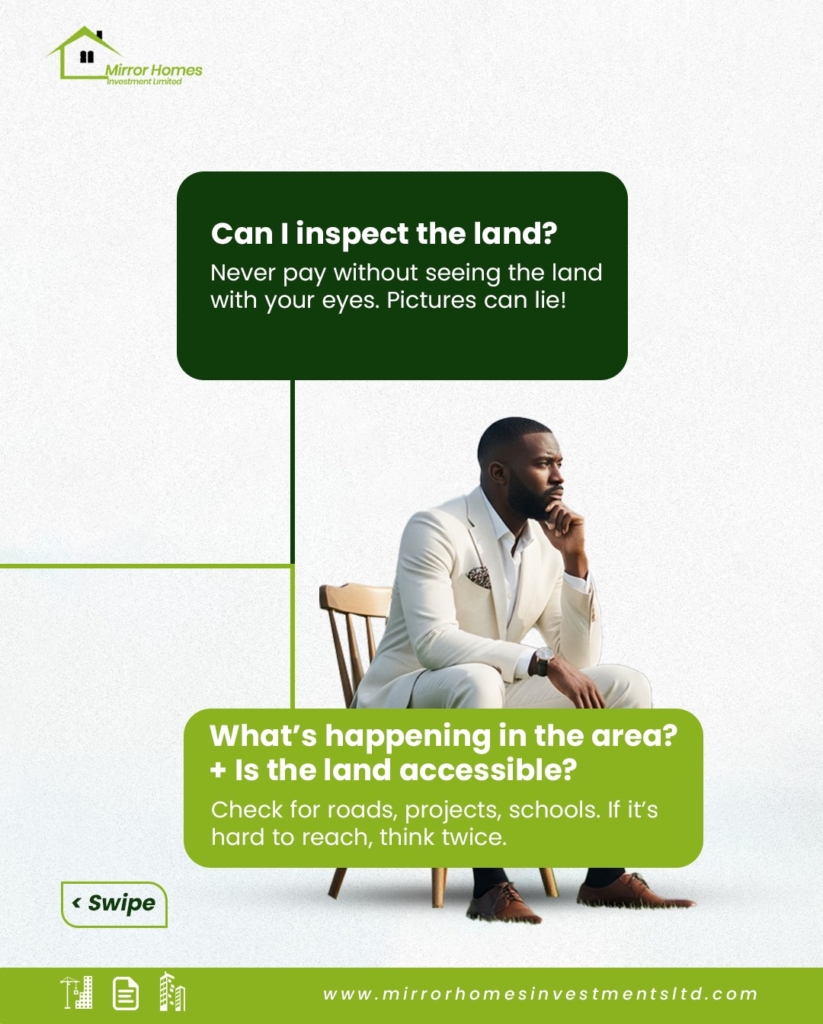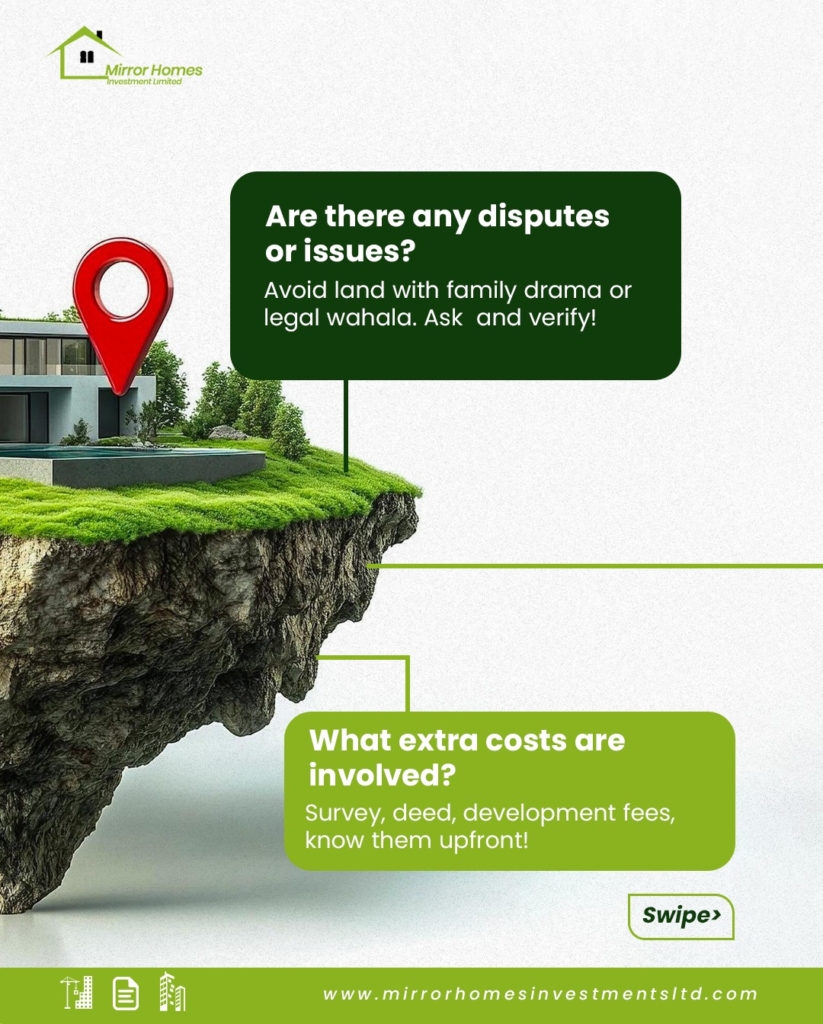Purchasing land is one of the most significant financial decisions you can make, offering both opportunities and risks. Whether you’re planning to build your dream home, start a business, or invest for the future, making an informed choice is critical to avoiding costly mistakes. Mirror Homes Investment Limited, a trusted name in real estate, has compiled a detailed guide featuring essential questions to ask before buying land.

1. Can I Inspect the Land?
One of the most fundamental steps in the land-buying process is a personal visit to the site. Never commit to paying for land without seeing it with your own eyes. Pictures and virtual tours can be deceptive, often failing to reveal critical details such as uneven terrain, flooding risks, or boundary disputes. Schedule a physical inspection to assess the land’s condition, accessibility, and overall suitability for your intended purpose. This hands-on approach allows you to verify the seller’s claims and build confidence in your decision.
2. What’s Happening in the Area?
Understanding the context of the land’s location is vital for its long-term value. Before signing any agreement, research the surrounding area thoroughly. Is the land easily accessible by road? Are there ongoing infrastructure projects, such as new highways or bridges, that could boost its worth? Consider the presence of schools, hospitals, or commercial hubs nearby, as these factors can influence demand and resale potential. Conversely, if the land is isolated or difficult to reach, it might pose logistical challenges or limit its usability. Take the time to evaluate these elements and think twice if the location raises red flags.

3. Are There Any Disputes or Issues?
Land ownership can sometimes be fraught with complications, making it essential to investigate any potential disputes or legal issues. Avoid properties entangled in family drama, inheritance conflicts, or unresolved lawsuits, as these can lead to prolonged legal battles and financial loss. Ask the seller directly about any known disputes and take the initiative to verify the information through local authorities or legal experts. This due diligence step is crucial to safeguarding your investment from future wahala (trouble).
4. What Extra Costs Are Involved?
Beyond the purchase price, buying land often comes with additional expenses that can catch unprepared buyers off guard. These may include survey fees to determine boundaries, deed registration costs, and development fees for utilities or infrastructure. Other potential costs could involve clearing the land, obtaining permits, or addressing environmental regulations. Knowing these upfront allows you to create a realistic budget and avoid financial strain down the line. Always request a detailed breakdown from the seller or consult a real estate professional to ensure transparency.

5. Who Owns the Land?
Establishing clear ownership is a non-negotiable aspect of any land transaction. Always ask for proof of ownership, such as title deeds, transfer documents, or other legal paperwork. Avoid making assumptions or taking shortcuts, as unclear ownership can lead to fraudulent deals or disputes with other claimants. Engage a lawyer or surveyor to authenticate the documents, ensuring the seller has the legal right to transfer the property to you. This step provides peace of mind and a solid foundation for your investment.
6. What Title Does the Land Have?
The title of the land is a critical indicator of its legal status and marketability. Ensure the property comes with a recognized title, such as a Certificate of Occupancy (C of O), Excision, or Gazette. These documents confirm the land is freehold, leasehold, or otherwise legally recognized by the government. If the papers are incomplete, inconsistent, or missing, it’s a red flag. In such cases, walk away to protect yourself from potential fraud or future legal challenges. Verifying the title with a professional can save you from significant headaches.
Final ThoughtsBuying land is a journey that requires patience and thorough research—rushing into a decision can lead to stress, financial loss, and regret. By asking these key questions and taking the time to verify every detail, you can make a confident and secure investment. Consider consulting with real estate experts, visiting the site multiple times, and reviewing all legal documentation with a professional. Mirror Homes Investment Limited is committed to guiding you through this process, offering reliable advice and support. For more resources and personalized assistance, visit www.mirrorhomesinvestmentsltd.com.



